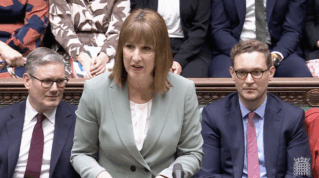Labour would reform the apprenticeship levy so that it can be spent on other types of training if the party comes into power.
The party plans to turn the policy into a “growth and skills levy” where businesses could use up to half of their contributions to fund non-apprenticeship training such as modular courses.
Full details of the policy are set to be published in a report produced by Labour’s Council of Skills Advisers – led by Lord Blunkett – in the coming weeks.
It is unclear at this stage how small and medium-sized employers would continue to access apprenticeships under the proposed system, but shadow skills minister Toby Perkins promised that non-levy payers will not see a reduction in the amount of funding available to them.
Keir Starmer made no mention of apprenticeships in his speech at his party’s annual conference today, but he did make a commitment to “give employers new flexibility to invest in world class training they need”.
Following his speech, the Labour Party press office announced several skills reforms to be overseen by a new body called Skills England, which would enforce greater devolution of adult education funding streams as well as an overhaul to the apprenticeship levy system.
Only employers with a wage bill of £3 million or more pay into the apprenticeship levy, at a rate of 0.5 per cent of their annual wage bill.
The current government’s levy policy was designed so that large employers would not use all their funds. Levy-payers lose access to their contributions after 24 months and unspent money is made available to small and medium-sized businesses who do not pay the levy to use to train apprentices.
Expanding the apprenticeship levy was a policy idea favoured by the former Labour leader Jeremy Corbyn, who pledged to reform the policy in his 2019 general election manifesto. His commitment followed calls from multiple industry representative bodies for apprenticeship levy payers to be able to fund wider skills training from their levy cash.
A Labour spokesperson said that under its newly proposed “growth and skills levy”, firms will be able to “spend up to 50 per cent of their levy contributions, including currently unspent money, on non-apprenticeship training, with at least 50 per cent being reserved for apprenticeships to preserve existing provision”.
“This flexibility will enable businesses to use more of the money in their levy pot for training, rather than it sitting unspent, investing in essential skills that we need to prepare Britain for the challenges of the next decade,” the spokesperson claimed.
It is unclear whether it is therefore Labour’s hope that all levy-payers will utilise all of their levy-contributions, which would mean there is no money left to fund SME apprenticeships, or if additional funding will be made available.
Perkins told FE Week that full details of how SMEs will be able to access apprenticeship funding will be shared by Labour’s Council for Skills Advisers. But he offered assurance that SMEs would not see a reduction in the apprenticeship funding they can access.
Labour’s spokesperson said that for SMEs who do not pay the levy, they would “be able to reclaim 95 per cent co-payments on approved courses in the same way as they do for apprenticeships”. Again, it is not clear at this stage precisely how this will work.
Labour said it will establish a new expert body, Skills England, to oversee its skills reforms. This includes approving a list of qualifications that businesses could spend their “flexible levy money”.
The list of qualifications will include modular courses in “priority areas, which lie at the core of our industrial strategy, including digital and green skills, social care and childcare that would boost training opportunities with a view to supporting national ambitions such as the transition to net zero”.
The growth and skills levy would also fund “functional skills and pre-apprenticeships training helping tackle key skills gaps especially around basic digital skills that hold back individuals and organisations”.
Labour said it also plans to merge the various adult education skills funding streams such as the Shared Prosperity Fund and Multiply, with the existing adult education budget. This would then be devolved to combined authorities who currently have control of the AEB for their area.
‘Skills England’, which would replace the current Unit for Skills within the Department for Education, would oversee this effort. Labour said the body would be run by experts from the Treasury and Department for Education, and pull together relevant trade associations, large and small employers, representatives of trade unions, central and local government, further and higher education.

















Labour are streets ahead of the thinking of this the Tory government, given the continual churn of ministers that is not surprising. The trick will be to ensure that apprenticeship delivery is maintained for all companies and that SME are supported. The 50% outside of the apprenticeships would need to be for meaningful skill top ups to support Industry, not fuzzy nice to have programmes.
One way of doing that would be to link all extra training to the overall intent of the apprenticeship standard, so for instance short data courses that increased skills across the business, in data visualization, or coding where needed and to only use those providers on the apprenticeship register. All sectors have those examples.
But the one big change they could make is to reduce the bureaucracy, trust the employer provider relationship and remove much of the audit burden which adds no value to the training and is there to justify roles in the Dept. I despair when policy people in the Dept, lecture Industry on 20% off the job, training plans, quality delivery when they have come from a background that lacks any Industry or Training provider background.